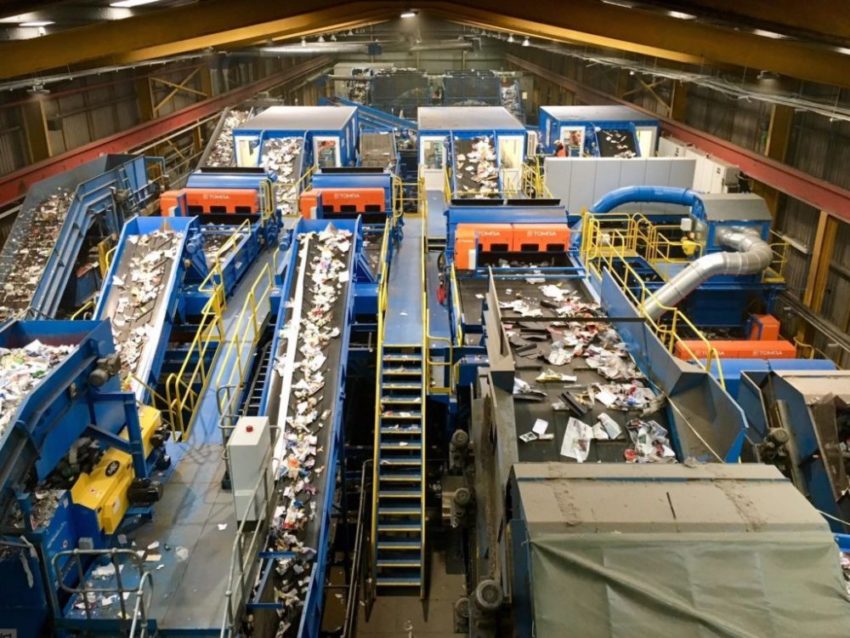IPR Complete €3.2M Upgrade to Ireland’s Largest Household Recycling Facility

The Regional Materials Recovery Facility in Ballymount processes the recycling material from approximately 400,000 homes in Dublin and the surrounding areas. The state of the art facility is operated by Irish Packaging Recycling (IPR), part of the Beauparc Utility Group. The facility is the largest of its kind in Ireland, employs 105 staff and operates up to 20 hours per day, 6 days a week. The plant can separate 20 tonnes of household dry recycling into its constituent parts (2 paper grades, cardboard, aluminium, steel and 5 grades of plastic) every hour. It forms the recovered materials into bales which it sells to markets around the world.
IPR successfully completed the €3.2M equipment upgrade in April 2018. To allow for the upgrade, the facility was closed for a five week period from 12th March to 16th April. Despite extremely challenging issues during construction, the project was completed and has exceeded expectations. The main contractor, McDonald International, had to work within a 35-day plant closure window with very limited scope to complete preparatory works. The 35 days schedule included working 5 weekends, 2 bank holidays, 3 days restricted access due to snow and 4 days restricted access while the roof was removed and reinstalled. The project was delivered on time and all staff returned to work on the 16th April to begin wet commissioning of the new lines.
The project included the installation of 37 new conveyors, 5 Tomra optical separators, 1 Nihot density separator, 3 picking cabins, complete overhaul of the existing electrical and controls system, upgrading the existing plant control interface and integrating old and new controls into a single system. All new equipment is fully CE certified and the new Siemens ‘ASIsafe’ electrical safety system brings the plant up to a SIL3 (safety integrity level) safety standard.
The upgrade to this facility has increased throughput by 30%, reduced the electricity consumed per tonne by 10%, improved the quality and value of final product and increased recovery rates through better materials handling and the addition of a ‘fibre recovery’ process to recover small pieces of paper from plant waste.




